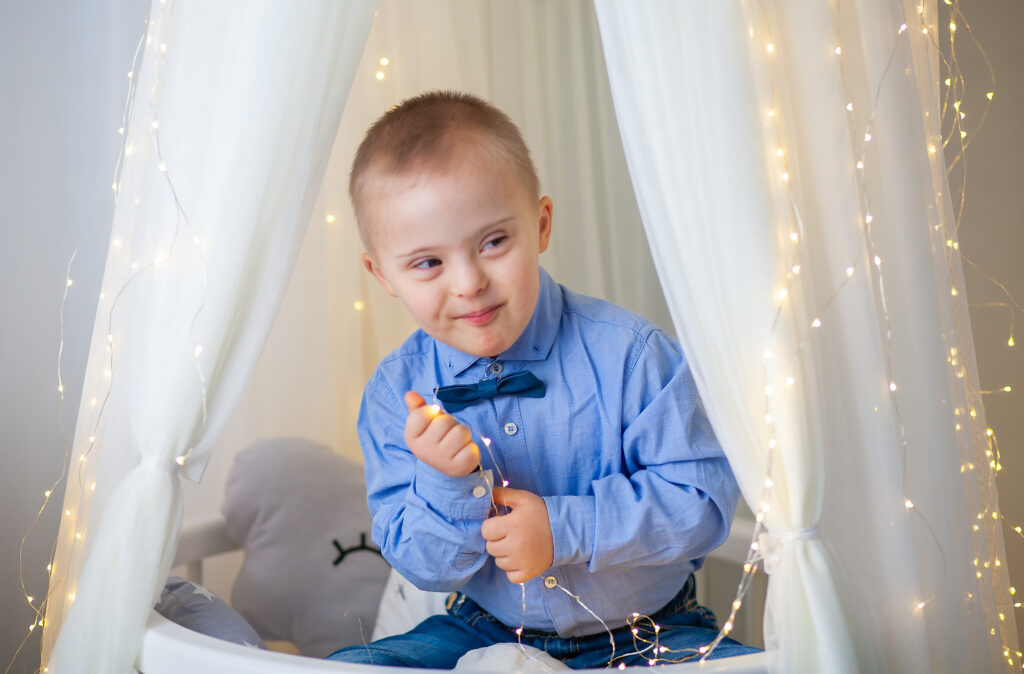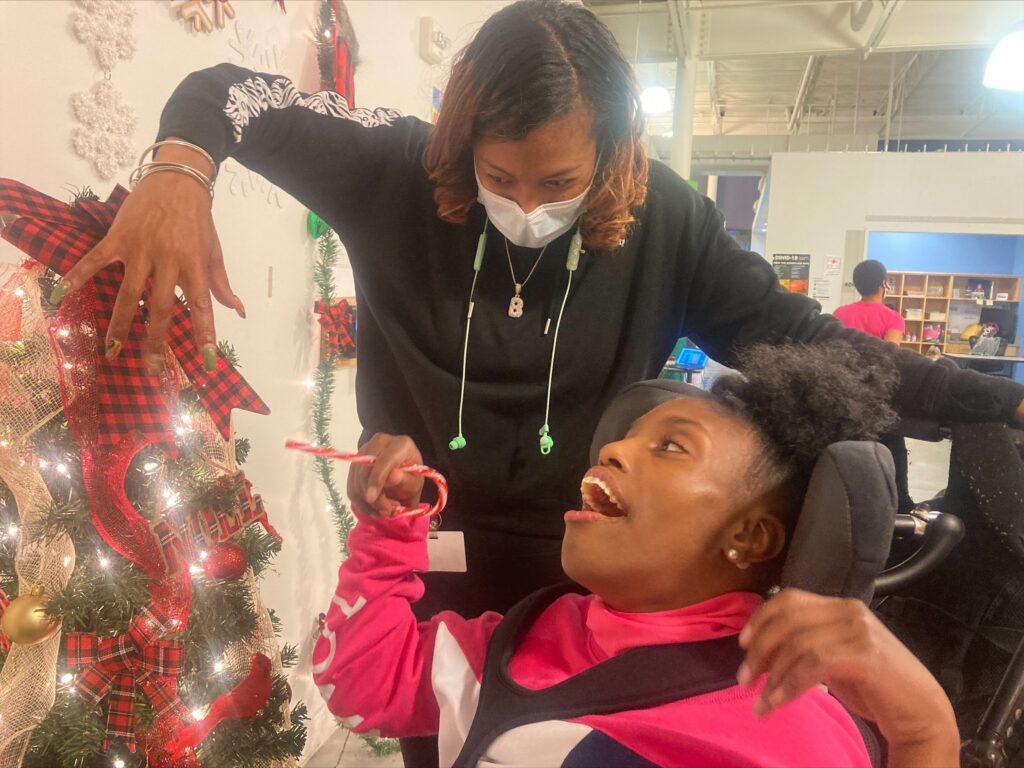This time of year is filled with holiday cheer! As we celebrate, it’s important to keep our friends and family members with disabilities in mind. The holiday season brings lots of fun but may also offer certain challenges.
As a community, we want to do our best to make sure everyone feels safe, comfortable and enjoys the festivities. For both children and adults with disabilities, a little bit of planning and empathy can go a long way!

Here are a few dos and don’ts to keep in mind, so that everyone can share in the holiday spirit:
DO prep friends and family: If you’re a caregiver, talk to your hosts ahead of time. Discuss your loved one’s needs, and gently, but firmly, tell them what your plans are. Identify a calm, quiet space where your loved one can retreat and engage in their favorite activities. Let your family or friends know that these accommodations will make the whole experience better for everyone. Ask for their support.
DO keep the person with disabilities in the loop: Explain to your loved one with disabilities where you’ll be going, who you’ll be seeing and what you’ll be doing that day. Use social stories or visual aids (like a picture schedule) so they’ll know what to expect each step of the way. Try to plan for any activities that may be unfamiliar or cause anxiety. For example, if unwrapping gifts is stressful, letting them know what their gifts are ahead of time can help.


DO prepare a bag of activities: When visiting your friends or relatives, fill a backpack or tote bag with things your loved one finds comforting or enjoys playing with. Make sure to include any sensory items, like fidgets or a weighted blanket. Keep this bag in the trunk of your car during the holidays so it’s always with you, even during unplanned stops and visits.
DO bring comfort foods: Mealtimes with new people can be stressful. Make it easier by packing familiar foods, drinks and snacks. Discuss this with your host ahead of time to build understanding and help prevent any hurt feelings, should your loved one decline (or be unable) to eat the food they prepared. If a crowded table is overstimulating, you can always take your plates outside or find a calm, quiet corner to eat in instead.
DO have fun with arts and crafts: Being creative and hands-on is a great way for both kids and adults to engage in the holiday season. There are a ton of simple things you can create with your loved one such a Christmas cards and paper ornaments. These crafts can also be given to friends and families as gifts.
DO play holiday music: Music therapy is an excellent activity for people with disabilities, whether listening or singing along. It’s proven to engage the brain, lower blood pressure and help build friendships and connection through shared experiences. Just be mindful of the style and volume of music your loved one may prefer. Create playlists together, dance and sing along!

DO make time to decorate: Children and adults with disabilities can participate in the holiday season by helping to decorate their home or facility. From hanging ornaments on the Christmas tree to hanging decorations on the wall, everyone can find a way to add some holiday spirit with their own personal touch. Allowing your loved one with disabilities to choose the style and placement of decorations empowers them to be creative and to have a sense of accomplishment. That makes anyone feel merry and bright!
DON’T forget about sights, smells and sounds: For individuals with heightened sensory awareness, bright lights, strong smells and loud sounds may be too much. Noise-cancelling headphones can help! Be thoughtful about perfumes or the strong smell of cinnamon- and holiday-scented candles. Again, finding a retreat either outside or inside can help.
DON’T leave home without an exit strategy: In case your loved one needs to leave the gathering, decide ahead of time how you would get them home safely. Having a plan in place makes it easier on everyone in the moment. Taking two cars or planning for one adult to escort your loved one home in an Uber are both good options.
DON’T feel pressure to go: People who care about you and your loved one will understand and not be offended if you decline an invitation. Maybe opt for a quiet family night instead. Give yourself permission to say no.
As a parent, caregiver, family member or friend with a child or an adult with disabilities, it can be very difficult not to put a lot of pressure on yourself. Make sure to give yourself grace. You don’t have to attend all of the events and activities to have a great time! Enjoy simply spending time with your loved ones, and don’t forget to give yourself the same kindness you give to others. With a little patience and understanding, we can all enjoy the holiday season together.
For more information about these tips, visit soar365.org.


